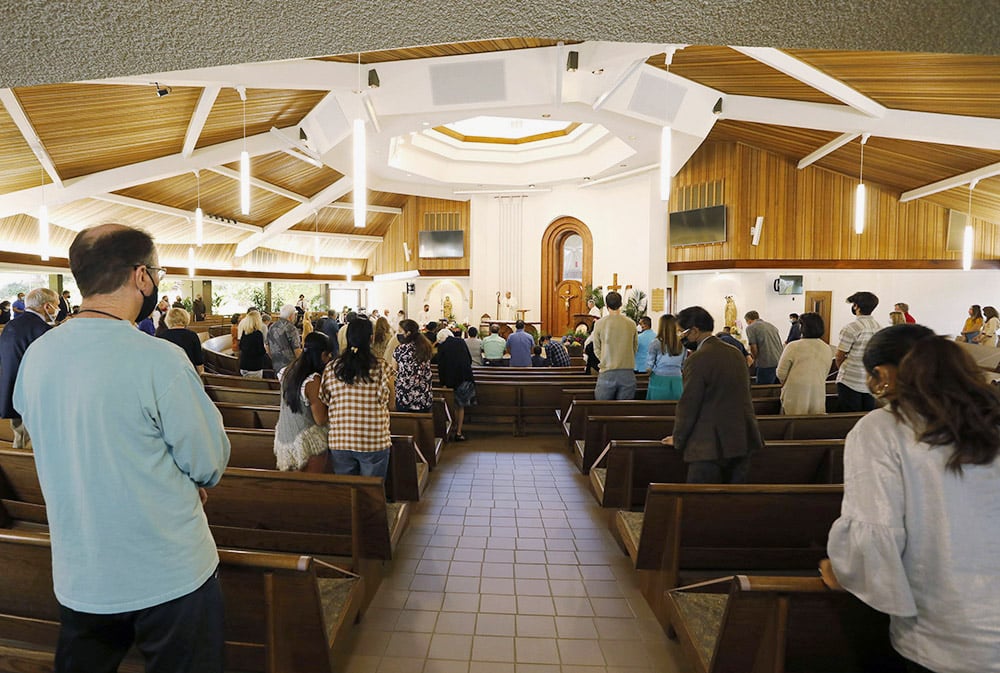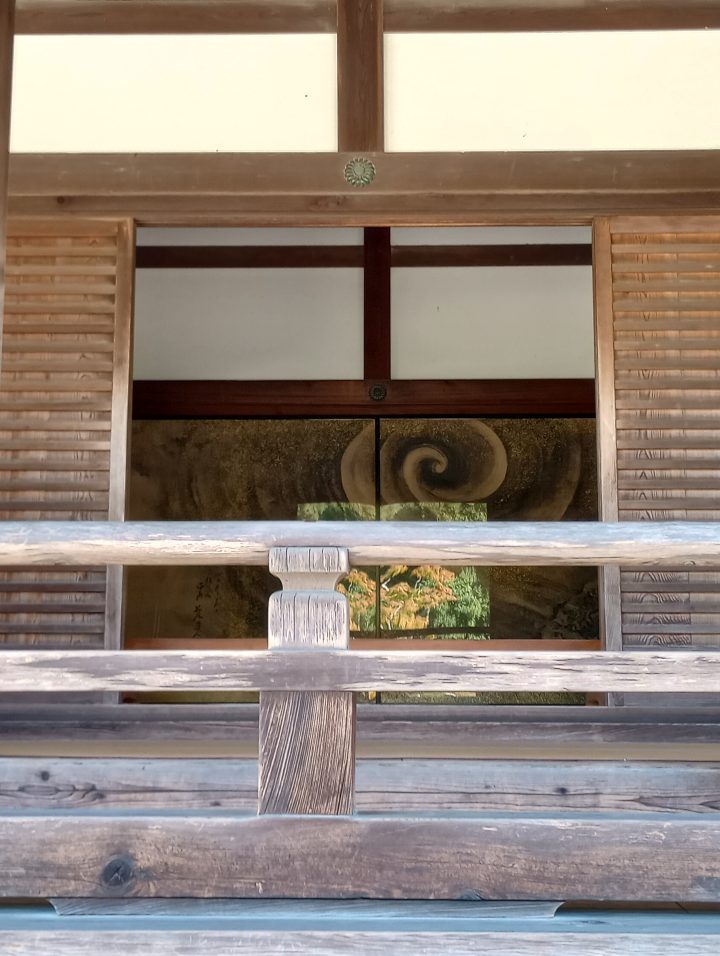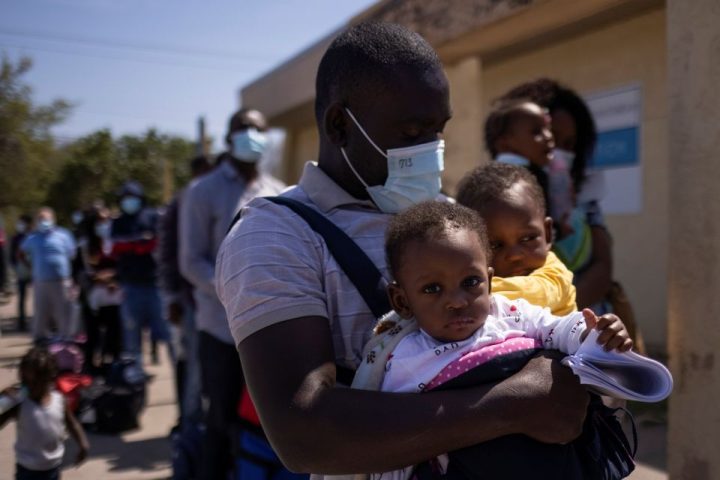
The San Diego Diocese has divested its financial holdings from the fossil fuel industry, the first Catholic diocese in the United States to make public such an economic move in response to Pope Francis’ repeated calls for an end to the era of fossil fuels in the face of climate change.
While more than 350 Catholic institutions worldwide have announced divestment commitments, the omission of any U.S. diocese has been notable, given the nation’s status as the global leader in fossil fuel production and largest historical source of planet-heating greenhouse gas emissions.
The Southern California diocese, led by Cardinal Robert McElroy, in 2022 began removing direct and indirect investments in companies involved in the extraction and production of coal, oil and gas from its portfolio of trust funds, retirement funds and health funds. It eliminated all direct investments in fossil fuels by the first half of 2023. By the end of the year, it had reduced its indirect holdings, through mutual funds, to 3%, surpassing its goal of less than 5%.
The pivot in investment policy away from fossil fuels was done « in keeping with the Holy Father’s ideas about stewardship of the environment and not wasting resources, » along with addressing human-driven climate change, said Kevin Eckery, diocesan communications director.
« This wasn’t what we wanted to be invested in and we had other things that we wanted to do, » he said.
Along with divesting, the diocese is looking to create a long-term program to promote investing in environmentally responsible companies.
« Pope Benedict XVI says that all purchasing is a moral act. And so we have to think about also the way that our financial behavior has an impact around the world, » Christina Bagaglio Slentz, the diocese’s associate director for creation care, told EarthBeat.
As part of their discernment, officials with the San Diego Diocese examined the socially responsible investment guidelines of the U.S. Conference of Catholic Bishops that were updated in 2021. Those guidelines advise Catholic institutions to « consider divestment from those companies that consistently fail to initiate policies intended to achieve the Paris Agreement goals, » referring to the 2015 global pact where all nations agreed to reduce their emissions to limit global warming to 2 degrees Celsius (3.6 degrees Fahrenheit) and ideally 1.5 C (2.7 F).
Fossil fuel production is on pace to double the level allowed under the 1.5 C warming limit.
José Aguto, executive director of Catholic Climate Covenant, said the San Diego Diocese’s divestment was « significant and an important marker. »
« Pope Francis signals quite clearly, saying so starting in [his encyclical] Laudato Si’, that we need to move away from fossil fuel production, » Aguto said, adding, « Our Catholic institutions have a moral obligation to heed that call, to do what we need to do to divest, to move away from fossil fuels and into a renewable energy future. »
Slentz called divestment « part of a broader effort to care for creation » within the San Diego Diocese.
To date, roughly 70% of its 97 parishes have installed solar panels, and the pastoral center gets nearly 90% of its electricity from renewable sources. It has also encouraged parishes to start creation care teams and is working to reduce single-use plastics throughout the diocese.
San Diego is one of at least 17 U.S. dioceses to enroll in the Vatican’s Laudato Si’ Action Platform, a multiyear project, endorsed by Francis, for Catholic institutions and individuals to live out the messages in the pope’s 2015 encyclical, « Laudato Si’, on Care for Our Common Home. »
In Laudate Deum, his recent apostolic exhortation « on the climate crisis, » Francis stated, « The necessary transition towards clean energy sources such as wind and solar energy, and the abandonment of fossil fuels, is not progressing at the necessary speed. »
The pope called on nations at the COP28 United Nations climate summit in December to eliminate the use of fossil fuels, with the Vatican delegation in Dubai supporting the first-ever agreement by countries to work to transition away from fossil fuels.
Advertisement
Burning fossil fuels is the primary driver of climate change, as the greenhouse gas emissions that are released trap heat in the atmosphere. Since the late 1800s, average global temperature has risen between 1.1 and 1.2 degrees Celsius and by the early 2030s is on track to surpass 1.5 C — a point where scientists say millions more people will be put at risk from far more destructive, and possibly irreversible, climate-related impacts, like stronger storms, rising sea levels and more intense heat waves and droughts.
The U.S. is the largest historical emitter of greenhouse gas emissions, responsible for roughly a quarter of overall global emissions. It ranks second in present-day emissions, behind China, and is the largest producer and consumer of oil and gas in the world.
Nearly 360 Catholic institutions globally have announced fossil fuel divestment commitments, including 66 dioceses and eight national and regional bishops’ conferences. So have 36 Catholic organizations in the U.S., among them nine universities (University of San Diego in 2021) and a dozen religious congregations and provinces.
In August, EarthBeat reported the San Diego Diocese was in the process of divesting, a development revealed as it was honored for its actions in response to Laudato Si’.
But the diocese waited to make the move public until it was certain it had achieved its divestment goals. News was featured in a late-December article in the Times of San Diego, and a Jan. 1 column in The Southern Cross, the diocesan newspaper.
Eckery said the returns in the newly divested portfolio have been « acceptable to us, so we don’t feel we’ve made any sacrifice by doing it. »
But beyond finances, he said McElroy and the diocese determined « it was the right thing to do. »
Anna Johnson, North American senior programs manager for the Laudato Si’ Movement, which keeps a database of Catholic divesting institutions, said, « We are very excited that San Diego has pursued and completed divestment, particularly in following our Catholic teachings responding to the ecological crisis that we are facing. »
Aguto with Catholic Climate Covenant said that while divestment is an important step, it cannot be the only one. He argued its impact is somewhat limited due to the majority of fossil fuel reserves under control of nationally owned oil and gas companies that do not have stockholders.
« We’re not getting to that, so we need to continue to find other ways beyond divestment if we’re really going to get to the heart of the problem, » he said.
Dan DiLeo, a theologian at Creighton University (which divested in 2020) who has advocated for Catholic institutions to divest from fossil fuels, said he applauded the « prophetic witness » and expressed hope it could inspire other U.S. dioceses and Catholic institutions to live out church teaching by cutting fossil fuels out of investment portfolios.
He added that U.S. institutions have a differentiated responsibility — a term Francis has used frequently — to lead in acting on climate change due to the nation’s disproportionate consumption of fossil fuels.
Announcing the diocese’s divestment wasn’t about accolades or attention, the diocese stressed, but in an effort to share that it can be done and provide another resource to other organizations that may be exploring the possibility.
« We don’t always need to reinvent the wheel, » Slentz said.



